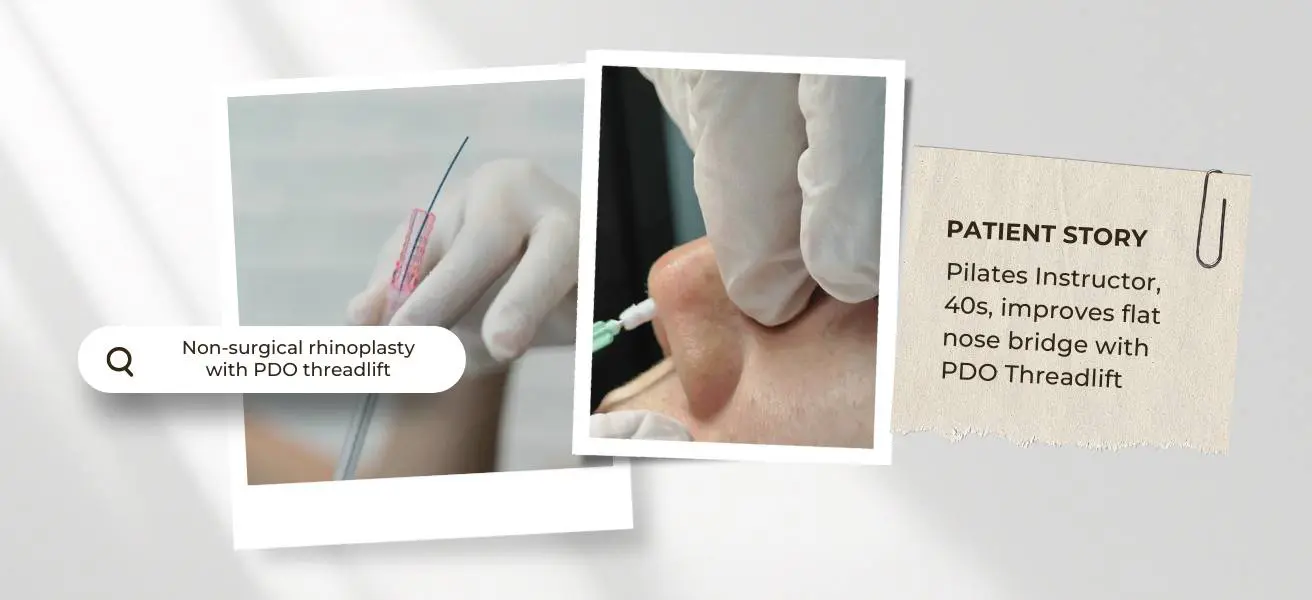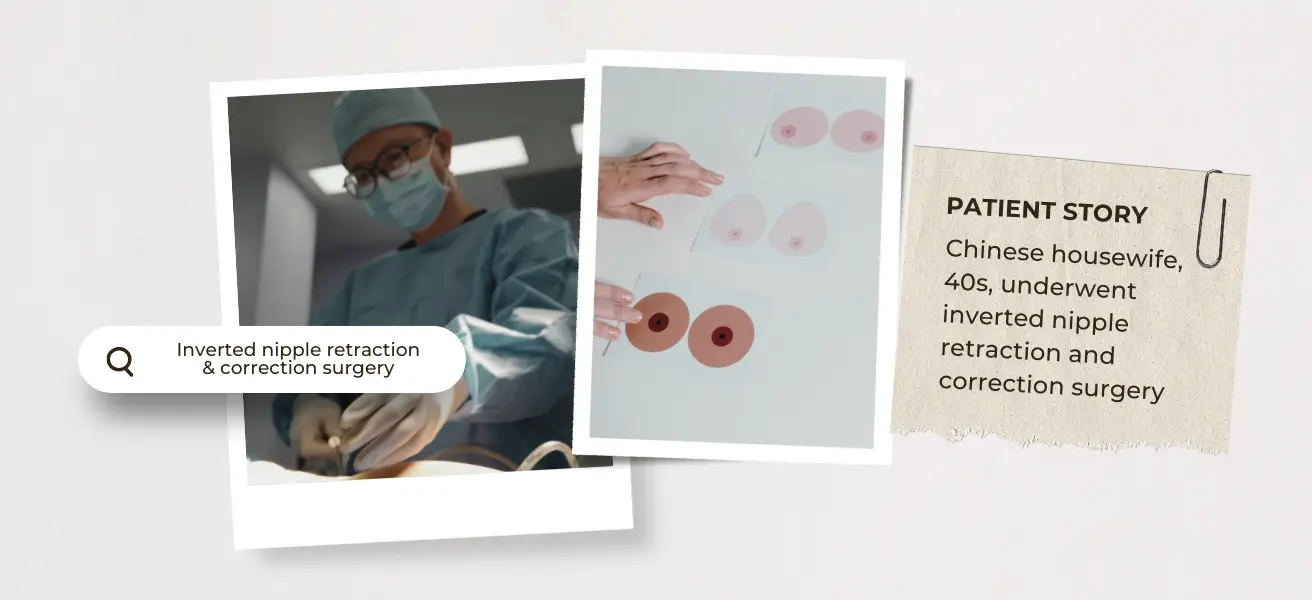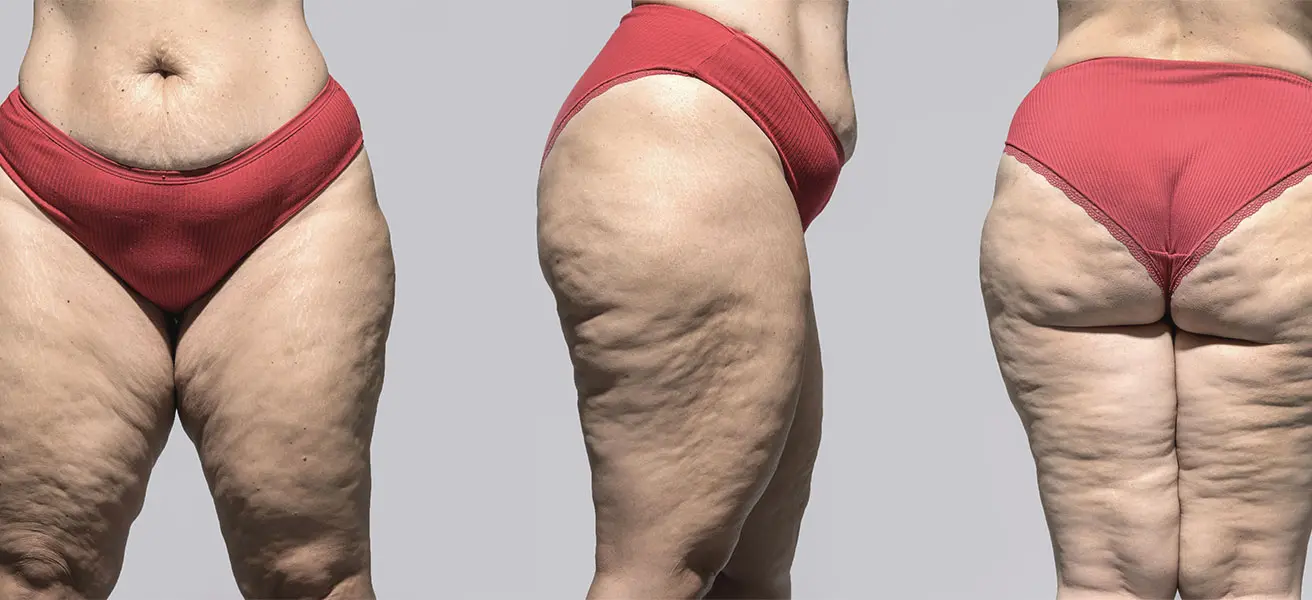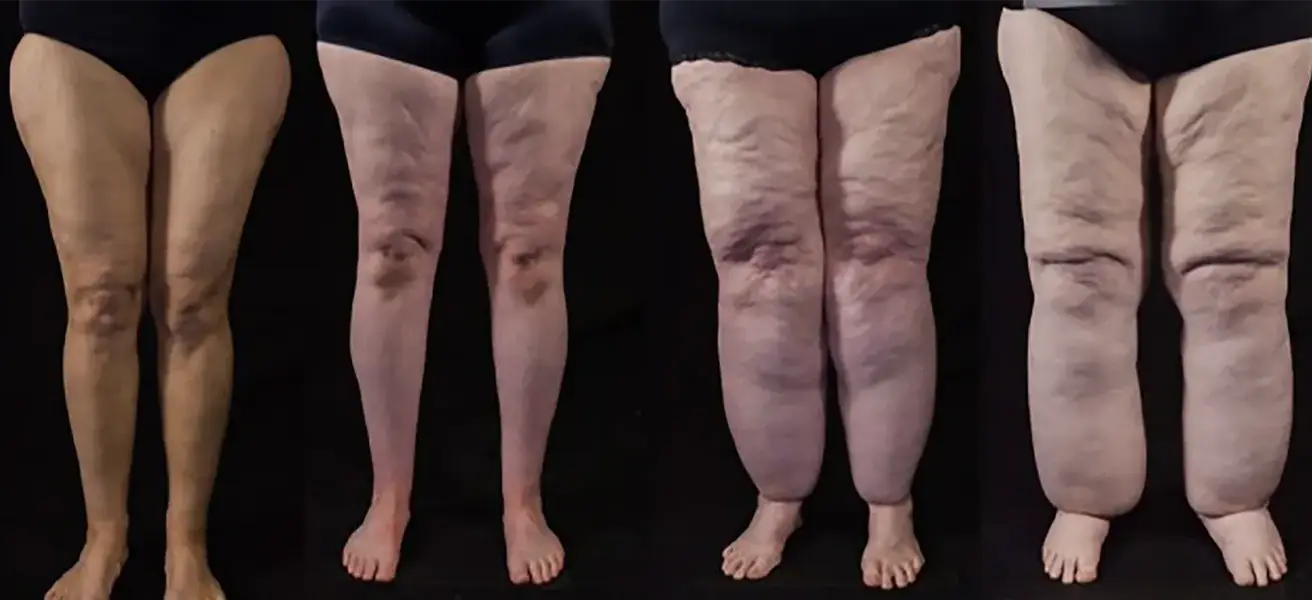Here is a breakdown of the different grades, how gyno affects your self-esteem, and what can be done to get you ready for your NS journey in full confidence.
Table of Contents
Hormonal imbalance is common and caused by several factors.
It can happen to both women and men, and the latter may or may not be aware of it.
26% of men in Singapore experience low testosterone levels and the negative symptoms that come with it.
The social stigma or "toxic masculinity" taboo that men shouldn't or do not talk about their problems is still prevalent.
What are hormones?
The human body has more than 50 hormones [1]. They are the body's chemical messengers.
They signal the body what to do and when to do something.
They profoundly affect the body's growth and development, metabolism, sexual function, reproduction and mood.
In a nutshell, hormones are essential to an individual's life and health.

The Importance of Hormones
Hormones regulate the human body's various systems. From the wake/sleep cycle, digestion, and respiration to tissue function, mood and metabolism [2].
Any imbalance, no matter how small, can have a significant effect on the human body's wellbeing and ability to function.
What Is Hormonal Imbalance In Men?
An imbalance occurs when there is too little or too much of something, including hormones. While some hormonal imbalances are temporary, others are long-term or chronic.
A hormonal imbalance may require treatment to improve the affected individual's quality of life and health [3].
Left untreated, it can potentially lead to several detrimental issues.
Causes Of Hormonal Imbalance In Men

In men, ageing is a leading cause of male hormonal imbalance.
- Typically, male growth hormone levels decrease after age 20.
- By age 40, only half of these hormones are retained.
- By the age of 80, about 5% is left.
Other leading causes of hormonal imbalance in men include [3]:
- Insulin resistance and obesity (brought about by excess sugars and refined starches)
- Trans fatty acids (as in pastries and highly processed foods)
- Chronic stress (excess cortisol)
- Sleep deprivation
- Working nights under bright lights and trying to sleep in the daytime (the melatonin effect)
- Fluoridated water and toothpaste
- Environmental xenoestrogens
- Cigarette smoking
- Zinc deficiency
- Testosterone deficiency
- Progesterone deficiency
- Sedentary lifestyle
- Cadmium toxicity
- Lack of sulfur-containing amino acids and glutamine
- Lack of good antioxidants
- Lack of exercise
- Magnesium deficiency
- Liver dysfunction (and the use of drugs that impair liver function)
- Polluted air
- Hypothyroidism
Certain medical conditions can also cause a hormonal imbalance
Certain medical conditions or issues are also known causes to create a hormonal imbalance in men, such as:
- Type 1 and type 2 diabetes
- Hypothyroidism and hyperthyroidism
- Pituitary tumours, benign tumours, cancer, and Cancer treatment
- High or low levels of cortisol (Cushing's Syndrome or Addison's Disease)
- Iodine deficiency
- Endocrine gland injury
- Hereditary pancreatitis
While ageing is inevitable, staying healthy and taking care of our wellbeing can help keep hormones balanced to some extent.
It can be a difficult challenge, especially regarding hereditary-related issues.
Types of Male Hormone Imbalance
Common male hormonal imbalances can be classified into four types [4], and these are:
- Andropause: Also known as "male menopause", this is the most common type
- Adrenal fatigue: This type is caused by prolonged stress. A common symptom is tiredness
- Hyperthyroidism: This condition occurs when the thyroid glands become overactive
- Hypothyroidism: This condition occurs when the thyroid glands become underactive
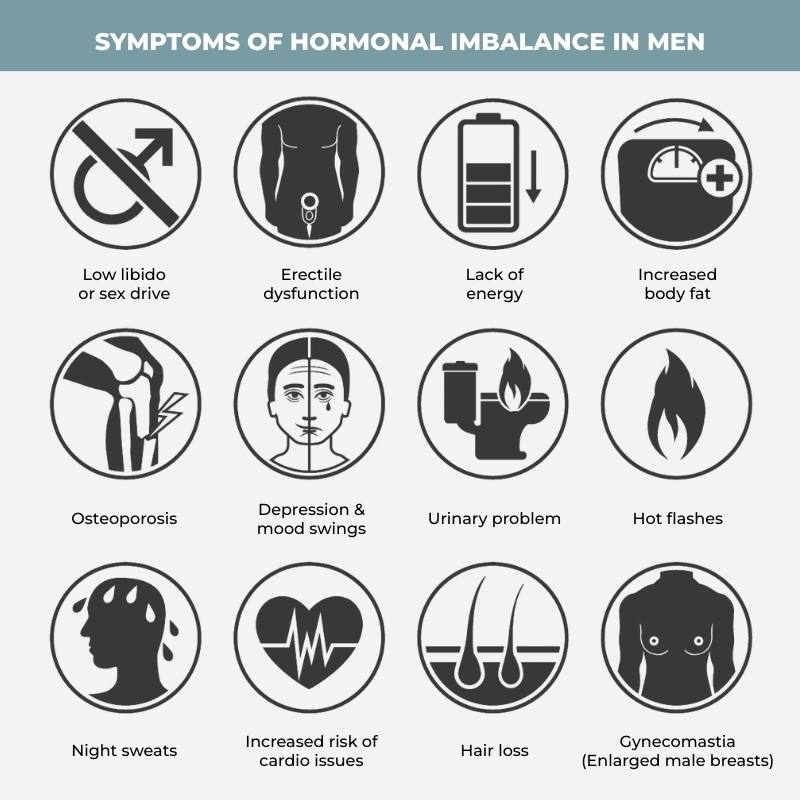
5 Most Common Symptoms Of Hormonal Imbalance In Men In Singapore
While hormonal imbalance in men can happen at any age and therefore can be distressing, there are common symptoms that men in Singapore can look out for.
1. Low Libido
Having a low libido or sex drive can be a sign of a hormonal imbalance [6].
In men, a downward dive in testosterone levels is a common cause, but high estrogen levels may also impede one's sexual desire and performance.
2. Erectile Dysfunction
Low testosterone is often associated with erectile dysfunction [7].
However, other factors or causes include stress, depression, heart disease, insomnia and others.
3. Losing Muscle and Gaining Fat
Testosterone helps maintain muscle mass, and when levels drop, muscles degenerate more easily [8].
Loss of muscle means fewer calories to burn (since muscles burn calories), and if an individual doesn't adjust their eating habits to account for this, they're more likely to gain weight.
4. Mood Changes
Low testosterone levels can lead to mood swings, depression, anxiety, decreased motivation and other symptoms, which, if not addressed or treated, can lead to more pressing and detrimental issues [9].
05. Gynecomastia
A strong indicator of hormonal imbalance is gynecomastia or male breast enlargement [10].
It is a real problem among men, but due to the social stigma surrounding it, most men are too shy to seek treatment until it is too late.
Gynecomastia is often, among others, the result of a decrease in testosterone levels compared to oestrogen levels.
The condition can be painful for some affected individuals and even adversely affect their mental wellbeing. It is an issue that needs to be correctly diagnosed and treated.
How to know if you're experiencing a male hormonal imbalance

Setting up a physical examination appointment with a doctor is recommended as a first step.
Bring along any supplements and medications, and be frank with the doctor regarding the symptoms you are experiencing.
The doctor may ask questions that include:
- How often are you experiencing symptoms?
- Does anything help relieve your symptoms?
- Have you lost or gained weight recently?
- Are you more stressed than usual?
- Do you have trouble getting or maintaining an erection?
Based on your answers, the doctor may suggest further tests to ascertain the root cause before recommending any treatment.






















